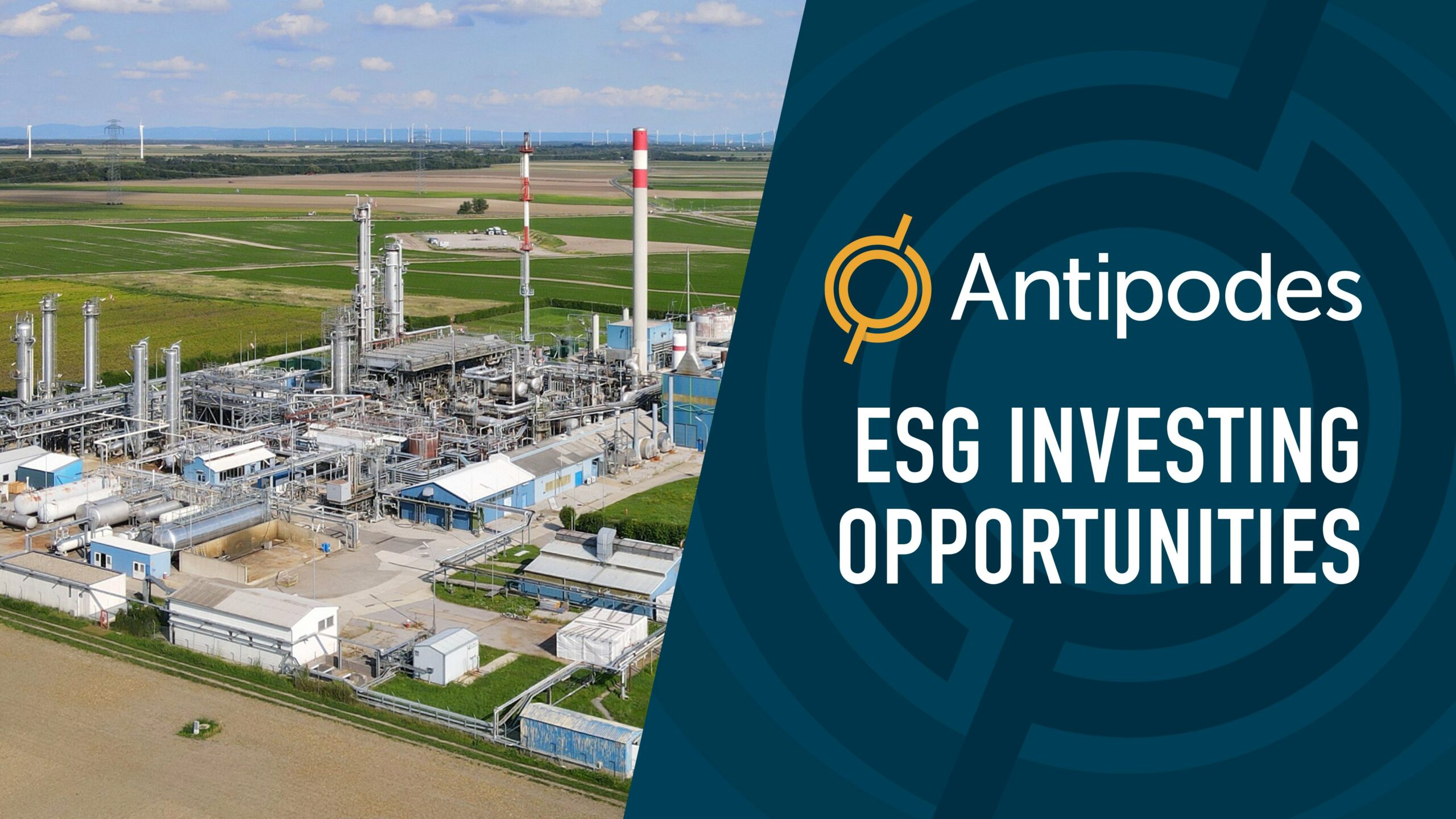The focus on investing through an ESG lens has intensified. But it’s not as simple as buying stocks with ‘green credentials’, or divesting exposure to carbon or stocks that score poorly on backward-looking metrics.
ESG investing must be forward looking. Intransigent stock screening is not the answer to affect change or to generate alpha.
Take power utilities as an example. Many score poorly on a backward-looking basis because of carbon intensity, yet many are investing in renewable capacity because it’s essential to the long-term solution to decarbonise economies. High carbon emitters are some of the most important pivot points to decarbonisation and should not be ignored.
For investors there can be significant value owning companies that are misunderstood from an ESG perspective.
This is where ESG can be a source of alpha, along with affecting positive outcomes for society.
A materially undervalued sector embedded in the transition to green energy
The retrofitting of global energy systems designed to run on fossil fuels is a shift unsurpassed by anything since the industrial revolution.
While on the surface it appears significant progress has been made, globally fossil fuels still account for about 80% of primary energy.
The task ahead is enormous, complicated by the fact that while changing the piping of our energy system we need to maintain living standards and allow developing countries to increase their energy consumption as their wealth increases.
Scale is one of the biggest challenges in the decarbonisation of economies. It’s a multi-trillion dollar and multi-decade investment process.
The transition fuel
Over the coming years, renewables will continue to rapidly expand in all parts of the world. But our research and industry engagement indicates scale, along with reliability of renewables, will lead to an expansion in global gas consumption over the next decade.
Natural gas produces half the emissions of coal per unit of electricity and its importance is being materially undervalued in the decarbonisation narrative. As grids are growing increasingly unstable due to higher penetration of renewables, they’re burning more gas. So, we have two powerful drivers – the first is the replacement of coal and the second is this balancing act within power grids.
This is a potent combination which significantly reduces carbon emissions, while for investors, it presents an opportunity to take advantage of greater global gas demand.
The broad shift in power generation in the US towards gas and renewables, and away from coal is estimated to have reduced carbon emissions by 25% since 2007 and we see the US becoming an important exporter of natural gas.
US gas prices are currently $10/unit cheaper than global gas prices, which will attract exports out of the US. This could have a profound impact on US gas players which have effectively been landlocked for the past decade, and with that we could see much higher global pricing to the US players as the US gas market becomes globalised.
We own Exxon, a natural gas producer that’s shifting towards more gas, as well as exposure to a variety of other leading US natural gas players. In fact, Exxon is a great example of a company in a carbon intensive industry that’s future proofing its business but is mispriced relative to its utility. This is going to be missed by many investors applying blunt, backward-looking ESG filters.
ESG and the energy transition
Investors want to drop carbon exposed stocks like hot potatoes because it’s becoming problematic to own high carbon emitters.
But is divesting the answer? Does anyone want these companies to disappear into the private sector with no shareholder oversight?
A more sensible approach to ESG involves managing this transition period toward decarbonisation and having a seat at the table to effect positive change. It’s why we see real value in credible transition stories.
Governance and societal issues
While decarbonisation dominates the ESG conversation, the importance of governance and societal impact can’t be overstated.
Markets are notoriously bad at pricing governance led change – and when that change happens, you often see multiple expansion coupled with stronger earnings power.
Volkswagen is a great example. All governance metrics looked terrible post the diesel emissions scandal, but the scandal brought a tornado to the boardroom and major strategic change. It’s the reason why VW is leading the charge in reducing the emissions of its fleet compared to other traditional automakers.
ESG in focus on the Good Value Podcast
At Antipodes, we look for acceptable standards and a pathway to continued, sustainable improvement – where improvement can be measured and monitored.
We like turnaround cases in highly carbon emitting sectors, we like seeing how supply and demand dynamics change when major carbon limitations are initiated, and we like corporate governance improvement candidates. And we actively avoid areas of the market where valuations are extreme because of perceived ESG factors.
In this episode of the Good Value podcast, we discuss:
- How ESG can be a source of differentiated alpha.
- How shareholders can support positive outcomes, including Antipodes’ recent experience voting against Exxon management to improve governance.
- How engagement can be used to build confidence around investment cases, including Antipodes’ experience with Norsk Hydro, a leading global aluminium producer with a CO2 footprint significantly lower than peers
Subscribe to receive the latest news and insights from the Antipodes team

